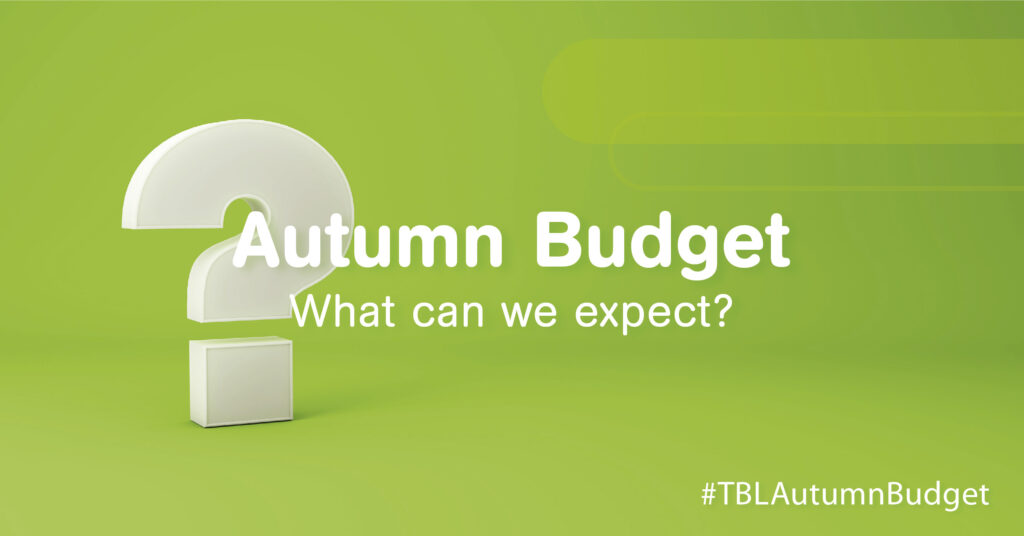When is the Next UK Budget?
The next UK Budget was expected to take place in October or November 2020 based on the dates of previous Budget announcements but has been cancelled, with the Chancellor of the Exchequer’s Winter Economy Plan instead being announced on 24 September 2020.
What is the Budget?
The Budget is a key fiscal event in which the Chancellor of the Exchequer, Rishi Sunak, announces the Government’s plans for tax and spending for the financial year. With the Coronavirus pandemic having significant ramifications on the economy, and the furlough scheme crucially due to end on 31 October, this year’s Autumn Budget is eagerly awaited.
What was expected to be included in the 2020 Autumn Budget?
Following the measures introduced in Mr Sunak’s Spring Budget in March 2020, and more recently, the Summer Economic Update in July 2020 – which included August’s Eat Out to Help Out incentive, the Coronavirus Job Retention Scheme Bonus and the Kickstart Scheme for new jobs – it was predicted that the Autumn Budget would focus on rebuilding the UK economy after six months of rises in unemployment and reduction in consumer spending.
Here are some other speculations on what will be included in the 2020 Autumn Budget:
Changes to Living Wage
As announced in this year’s Spring Budget, the Government was set to increase the National Living Wage to £10.50 by 2024 for everyone over the age of 21, with the rate raising to £9.21 an hour from April 2021. However, due to the pandemic, The Telegraph has reported concerns that this rate will be “unaffordable” for many businesses to pay their staff, with officials now planning an “emergency brake” on this.
National Insurance rises
There are also reports that the Chancellor is considering increasing Class 4 National Insurance from 9% to 12% to bring self-employed National Insurance contributions in line with the rate paid by employees. If announced, the rise would add an average of £200 to a self-employed worker’s tax bill. This echoes former Chancellor Philip Hammond’s announcement in his 2017 Spring Budget to increase Class 4 NICs, however, there was a U-turn on this just a week later.
Income Tax increases
As well as increases to NICs, there are rumours that Income Tax bands may also be reviewed in the Autumn Budget based on HMRC’s calculations, despite the Conservative Party’s pledge in January 2020 that they would “not raise rates of income tax, national insurance or VAT”. In May, HMRC’s official statistics relating to the “Direct effects of illustrative tax changes” shared details on how a 1% increase in the basic rate of Income Tax from 20% to 21% could raise £4.7bn in 2020-21, while increasing the higher rate from 40% to 41% could raise £1bn.
Rise in Corporation Tax
There are also rumours of changes to Corporation Tax to help balance the public finances. Corporation Tax could be increased from 19% to 24% – the global average tax rate for business – which would raise £12bn next year, according to The Sunday Times.
Pension and Inheritance Tax updates
To help fund other recovery plans during this financially turbulent time, tax changes on pensions are expected to be announced. The triple lock on state pensions, which guarantees they rise at least as much as wages or inflation, could be suspended. Mr Sunak is said to be considering making a cut to pension tax relief, potentially changing this to a flat rate for all taxpayers, rather than at 20% or 40% for higher earners. There are reports that the Chancellor is also considering simplifying Inheritance Tax rules to further help raise funds to support the UK’s economic recovery.
Capital Gains Tax reforms
Changes to the way Capital Gains Tax works has also been anticipated, with the Chancellor considering reforming CGT so it is paid at the same rate as Income Tax. This would mean that the profits from selling assets would increase from 10% to 20% for basic rate taxpayers, and from 20% to 40% for higher and additional rate taxpayers.
TBL Thoughts
Whatever changes are made, the Chancellor will need to ensure that the SMEs that will be required to grow the economy are not hit too hard by any tax changes as this group of business owners will be vital in ensuring that the economy recovers from the impact of COVID-19.
Recap: 2020 Spring Budget key points
Coronavirus was the leading concern to be addressed in this year’s Spring Budget, which was held just under two weeks before we went into lockdown. The Chancellor announced the “largest Budget giveaway since 1992”, as he promised “stability and security” for the UK to prosper in the “challenging times” ahead, with the Coronavirus Job Retention Scheme and a number of grants and payment holidays being made available to give businesses a chance to survive during the pandemic.
Read more: Follow the link for our key takeaways for the 2020 Spring Budget.
Whatever happens in this Budget, TBL Accountants will keep you up to date, letting you know how the announcements will affect you and your business.
Follow us on Facebook, Twitter and LinkedIn for handy reminders on the updates you need to know.
TBL Accountants are your local accountancy firm operating in Southend and across Essex. We specialise in a variety of services as personal, business, and charity accountants. Want to find out more? Get in touch with our team today.
Here for you.
